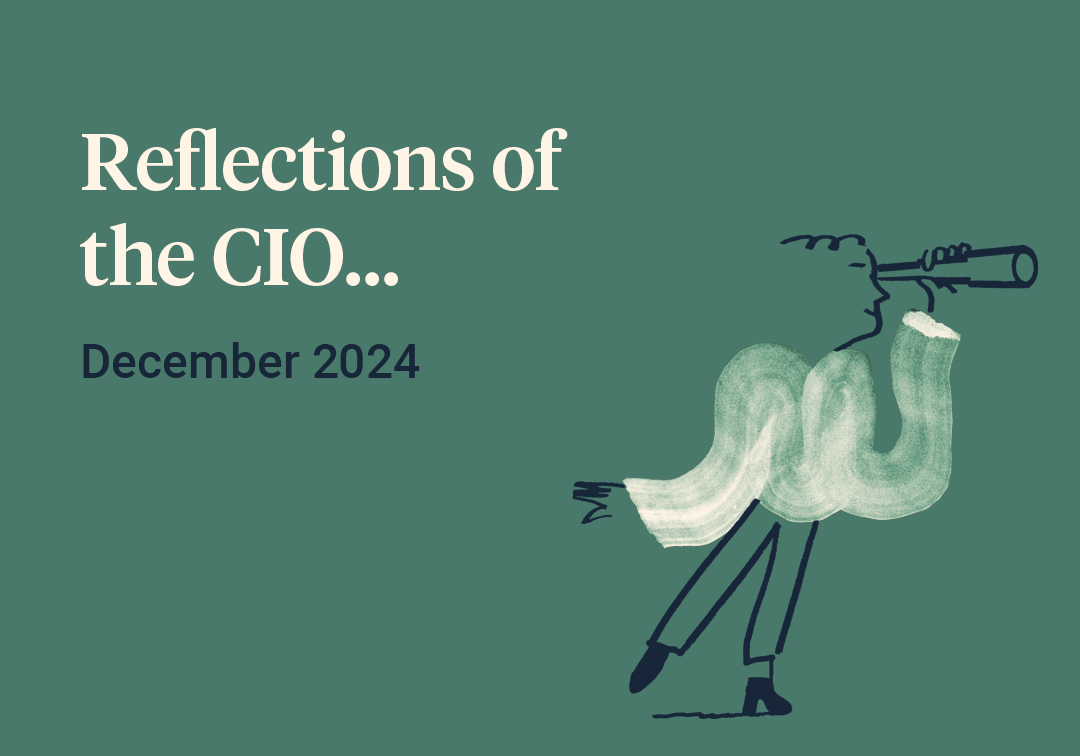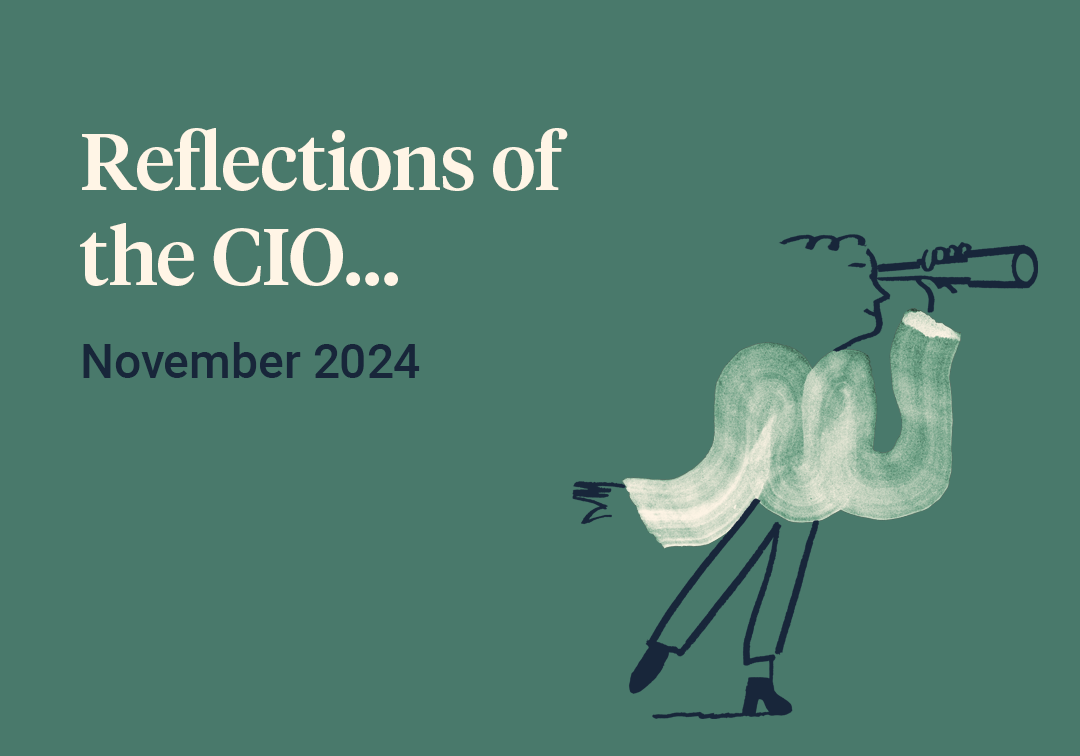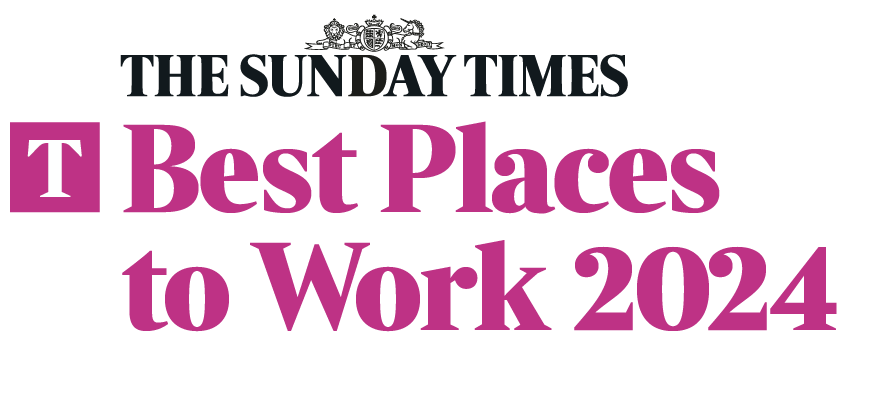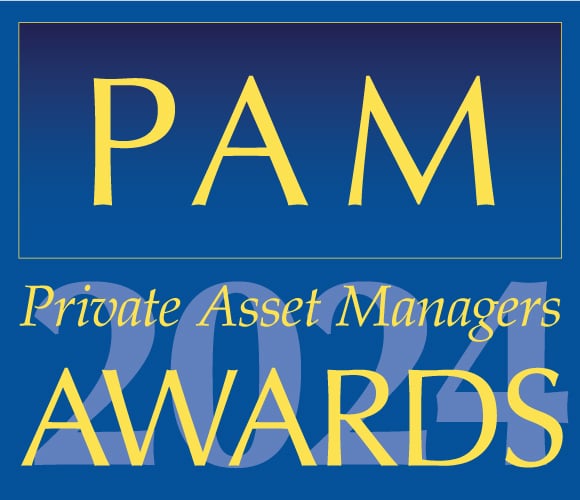Hope beats fear
November was a month during which markets shrugged off their post summer nervousness and embraced a more positive view of the future. Riskier assets rallied across the globe, whilst safer ones continued their late October retreat, albeit from some very extended valuation levels. The burst of enthusiasm was fuelled by optimism surrounding the latest round of Sino-US trade talks and, helped by a pick-up in corporate takeover activity, served as a reminder to investors that there is some value left in stock markets if one looks hard enough.
“Riskier assets rallied across the globe, whilst safer ones continued their late October retreat”
It was just as well that markets adopted a broad-brush ‘risk on’ approach to the month, as a closer inspection of the detail would turn up very little evidence in current data to support such an optimistic view. Whilst some CEO’s are feeling confident enough to launch a bout of merger activity, the large majority are pessimistic about the future. There is undoubtedly real damage being inflicted in the manufacturing sector by uncertainty over the trade dispute between the world’s two largest economies, which has the effect of leaving capital expenditure programmes on hold and dragging profitability lower. If this pessimism and paralysis were to produce job losses, then the previously bulletproof consumer sector would be impacted, and a slowing global economy could easily slide into recession.
For the month of November though, such concerns were firmly on the back burner as investors began to price in a world where trade and Brexit issues are eventually resolved by a heady cocktail of vested interests and the passage of time. The thinking being that, with a presidential election due next year, a trade deal rather than a trade war is a stronger message for the US administration to take to the country, whilst closer to home hopes have risen a little that a new government would have enough of a majority to bring the Brexit process to a conclusion.
As speculation on geopolitics waxes and wanes on the latest opinion poll or tweet, it is easy to forget that there are perhaps simpler, more practical forces at work underpinning the recovery of markets this year. The support central banks have offered through interest rate cuts and balance sheet expansion, has injected a large positive impulse into the global economy and drastically reduced the chances of a mishap. Similarly, with over $13 trillion of high quality debt trading with negative yields (and yes that does mean exactly what it sounds like; a large pool of assets where investors assume guaranteed small losses, to avoid the risk of incurring larger ones) it is no surprise that at least some money is working its way into riskier assets by default.
Do you need help managing your investments?
Our team can recommend an investment strategy to meet your financial objectives and give you peace of mind that your investments are in good hands. Get in touch to discuss how we can help you.

Desperately seeking validation
Taking all the points above into account, we think we are now at the point where some form of validation of the recovery in market prices this year is sorely needed.
“We are now at the point where some form of validation of the recovery in market prices this year is sorely needed”
The most likely source for this would be evidence that economic surveys and data are turning upwards, ending a long period of deceleration and negative profit revisions. In an environment like that, the steady removal of political uncertainty, combined with the supportive actions of central banks would give investors a much more solid basis for future optimism than we currently have. Unfortunately, whilst the supportive role of Central Banks is broadly predictable, the impact of political actions on trade and activity is much less so. It might be rational for the Brexit and Sino-US trade issues to be settled quickly, but then again, rational behaviour is increasingly something we only see in textbooks. Our own view is that given steady portfolio performance year to date, we can afford to position portfolios slightly more to the defensive side just now, waiting for some key events to pass and more economic data to arrive.
“Given steady portfolio performance year to date, we can afford to position portfolios slightly more to the defensive side just now”
The middle of December will be important, given that we will have a UK election result plus a decision on Sino-US tariff action coming close together. We will have an investment committee meeting the morning after the election and will write to you with an update shortly after we have thought through the implications (and those of any tariffs imposed by the USA on China, a decision with more impact on global markets, including the UK).
Portfolio performance
Overall a positive month for portfolios with returns in the range of +0.2% to 1.9%, the main cause being the rally in developed equity markets. UK assets benefitted from the perception that a majority Conservative UK government could be formed, breaking the impasse of a hung parliament and allowing undervalued assets (e.g. UK domestically focussed companies) to rally. Global equity managers, such as a new position in T Rowe Price Global Focussed Growth fund, also benefitted from some excellent stock picking and the better overall investor mood. Currency markets were broadly quiet, with defensive positions in gold and high-quality bonds being the main negative contributors on the month, their falls being a combination of healthy profit taking and a revival in risk appetite elsewhere.
On behalf of the Saltus Investment Committee, December 2019
Do you need help managing your investments?
Our team can recommend an investment strategy to meet your financial objectives and give you peace of mind that your investments are in good hands. Get in touch to discuss how we can help you.

Article sources
Editorial policy
All authors have considerable industry expertise and specific knowledge on any given topic. All pieces are reviewed by an additional qualified financial specialist to ensure objectivity and accuracy to the best of our ability. All reviewer’s qualifications are from leading industry bodies. Where possible we use primary sources to support our work. These can include white papers, government sources and data, original reports and interviews or articles from other industry experts. We also reference research from other reputable financial planning and investment management firms where appropriate.
The views expressed in this article are those of the Saltus Asset Management team. These typically relate to the core Saltus portfolios. We aim to implement our views across all Saltus strategies, but we must work within each portfolio’s specific objectives and restrictions. This means our views can be implemented more comprehensively in some mandates than others. If your funds are not within a Saltus portfolio and you would like more information, please get in touch with your adviser. Saltus Asset Management is a trading name of Saltus Partners LLP which is authorised and regulated by the Financial Conduct Authority. Information is correct to the best of our understanding as at the date of publication. Nothing within this content is intended as, or can be relied upon, as financial advice. Capital is at risk. You may get back less than you invested. Tax rules may change and the value of tax reliefs depends on your individual circumstances.
Related blog posts
About Saltus?
Find out more about our award-winning wealth management services…
Winner
Top 100 Fund Selectors 2024
Winner
Best Places to Work 2024
Winner
Best Financial Advisers to Work For
Finalist
Investment Performance
£7.5bn+
assets under advice
20
years working with clients
300+
employees
97%
client retention rate






